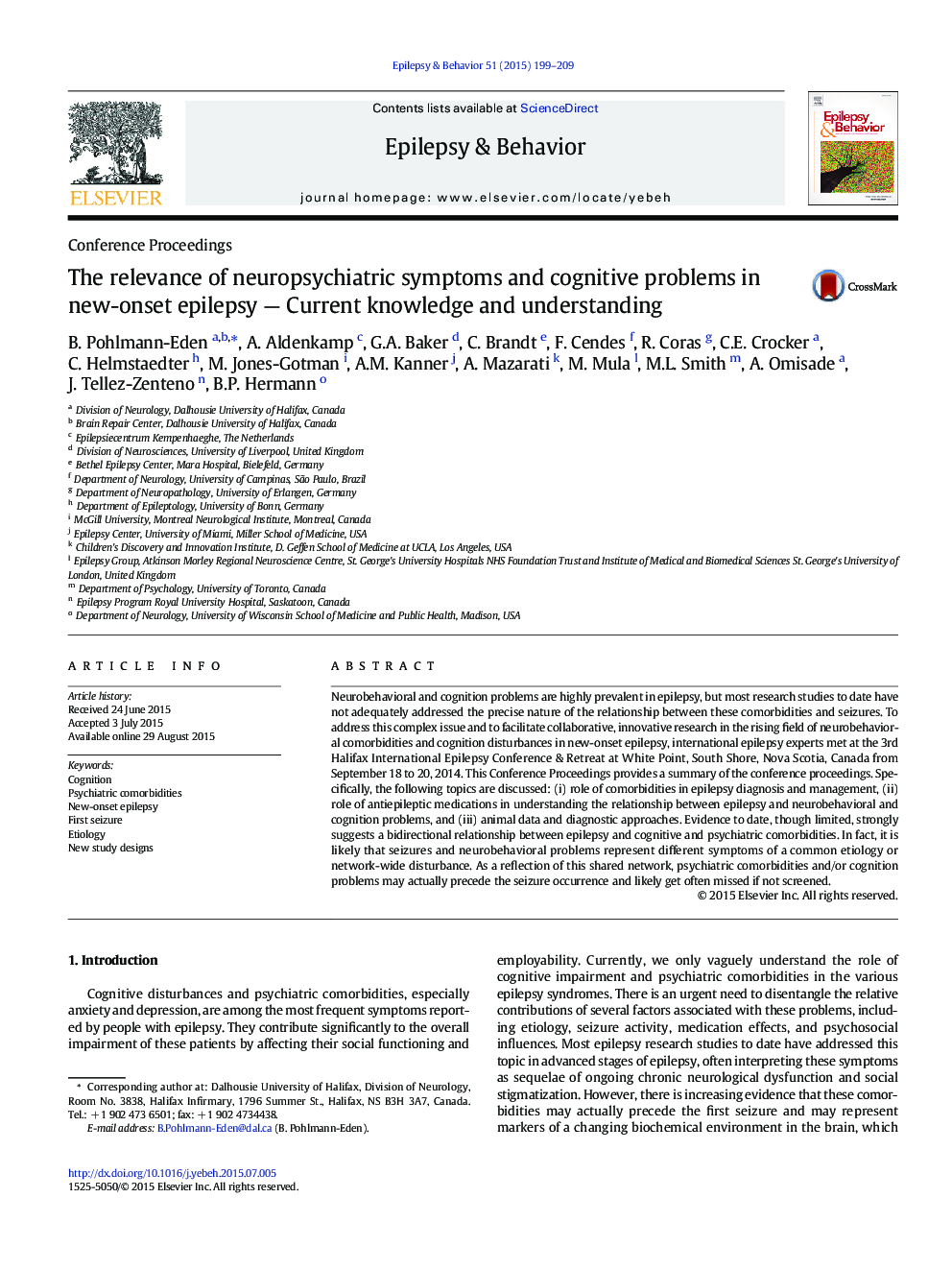| Article ID | Journal | Published Year | Pages | File Type |
|---|---|---|---|---|
| 6010605 | Epilepsy & Behavior | 2015 | 11 Pages |
â¢Factors in epilepsy-associated neurobehavioral changes need to be disentangled.â¢Cognition and behavior are already compromised at first seizure occurrence.â¢Early epilepsy (EE) is often a comorbidity itself in subtle complex brain pathology.â¢First seizures reflect the “loudest noise” in widely disturbed neuronal networks.â¢Longitudinal multimodal studies are needed in EE to address this topic.
Neurobehavioral and cognition problems are highly prevalent in epilepsy, but most research studies to date have not adequately addressed the precise nature of the relationship between these comorbidities and seizures. To address this complex issue and to facilitate collaborative, innovative research in the rising field of neurobehavioral comorbidities and cognition disturbances in new-onset epilepsy, international epilepsy experts met at the 3rd Halifax International Epilepsy Conference & Retreat at White Point, South Shore, Nova Scotia, Canada from September 18 to 20, 2014. This Conference Proceedings provides a summary of the conference proceedings. Specifically, the following topics are discussed: (i) role of comorbidities in epilepsy diagnosis and management, (ii) role of antiepileptic medications in understanding the relationship between epilepsy and neurobehavioral and cognition problems, and (iii) animal data and diagnostic approaches. Evidence to date, though limited, strongly suggests a bidirectional relationship between epilepsy and cognitive and psychiatric comorbidities. In fact, it is likely that seizures and neurobehavioral problems represent different symptoms of a common etiology or network-wide disturbance. As a reflection of this shared network, psychiatric comorbidities and/or cognition problems may actually precede the seizure occurrence and likely get often missed if not screened.
